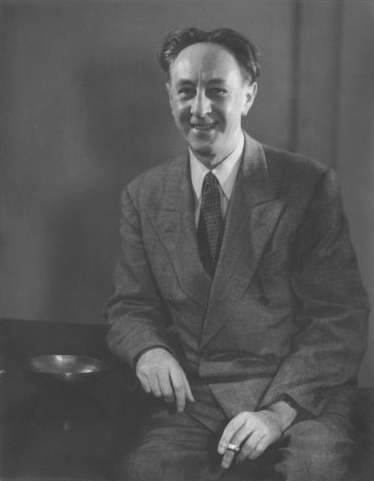Tuesday, December 8, 2015
Birthdays

Jean Sibelius
In 1865 Jean Sibelius was born in Hämeenlinna, Finland. He is widely recognized as his country’s greatest composer and, through his music, is often credited with having helped Finland to develop a national identity during its struggle for independence from Russia. The core of his oeuvre is his set of seven symphonies which, like his other major works, continue to be performed and recorded in his home country and internationally. In addition to his symphonies, Sibelius’s best-known compositions include Finlandia, the Karelia Suite, Valse triste, the Violin Concerto, the choral symphony Kullervo, and The Swan of Tuonela (from theLemminkäinen Suite). Other works include pieces inspired by the Finnish national epic, the Kalevala, over a hundred songs for voice and piano, incidental music for numerous plays, the opera Jungfrun i tornet (The Maiden in the Tower), chamber music, piano music, Masonic ritual music, and 21 publications of choral music. Throughout his career, the composer found inspiration in nature and Nordic mythology, especially the heroic legends of the national epic, the Kalevala. Sibelius composed prolifically until the mid-1920s but after completing his Seventh Symphony (1924), the incidental music for The Tempest (1926), and the tone poem Tapiola (1926), he failed to produce any major works in his last thirty years, a stunning and perplexing decline commonly referred to as “The Silence of Järvenpää”, the location of his home. Although he is reputed to have stopped composing, he attempted to continue writing, including abortive efforts on an eighth symphony. In later life, he wrote Masonic music and re-edited some earlier works while retaining an active but not always favourable interest in new developments in music. The Finnish 100 mark note featured his image until 2002 when the euro was adopted. Since 2011, Finland has celebrated a Flag Day on 8 December, the composer’s birthday, also known as the “Day of Finnish Music”. In 2015, the 150th anniversary of the composer’s birth, a number of special concerts and events have been planned, especially in the city of Helsinki. 1

Bohuslav Martinů
In 1890 Bohuslav Martinů was born in Policka, Czechoslovakia. Martinů wrote 6 symphonies, 15 operas, 14 ballet scores and a large body of orchestral, chamber, vocal and instrumental works. Martinů became a violinist in the Czech Philharmonic Orchestra, and taught music in his home town. In 1923 Martinů left Czechoslovakia for Paris, and deliberately withdrew from the Romantic style in which he had been trained. In the 1930s he experimented with expressionism and constructivism, and became an admirer of current European technical developments, exemplified by his orchestral works Half-time and La Bagarre. He also adopted jazz idioms, for instance in his Kuchyňské revue (“Kitchen Revue”). In the early 1930s he found his main font for compositional style, the neo-classical as developed by Stravinsky. With this, he expanded to become a prolific composer, composing chamber, orchestral, choral and instrumental works at a fast rate. His use of the piano obbligato became his signature. His Concerto Grosso and the Double Concerto for Two String Orchestras, Piano and Timpani are among his best known works from this period. Among his operas, Julietta and The Greek Passion are considered the finest. He is compared with Prokofiev and Bartók in his innovative incorporation of Central European ethnomusicology into his music. He continued to use Bohemian and Moravian folk melodies throughout his oeuvre, usually nursery rhymes—for instance in Otvírání studánek (“The Opening of the Wells”). His symphonic career began when he emigrated to the United States in 1941, fleeing the German invasion of France, to compose his six symphonies, which were performed by all the major US orchestras. Eventually Bohuslav Martinů returned to live in Europe for two years starting in 1953, then was back in New York until returning to Europe for good in May 1956. He died in Switzerland in August 1959. 2

Sir James Galway
Happy 77th birthday Sir James Galway! He was born in Belfast in 1938. He is nicknamed “The Man With the Golden Flute”. Following in the footsteps of Jean-Pierre Rampal, he became one of the first flute players to establish an international career as a soloist.
Premiers
In 1813 Ludwig van Beethoven’s Symphony No. 7 and Wellington’s Victory both premiered on the same night in Vienna. He had some help, too! Ignaz Moscheles and Anotnio Salieri assisted him in directing Wellington’s Victory. The orchestra included Louis Spohr, Giacomo Meyerbeer and Johann Nepomuk Hummel.
In 1915 Jean Sibelius conducted the premier performance of his Symphony No. 5 in Turku.
On This Day in Classical Music
In 1790 Johann Peter Salomon and Joseph Haydn sign a contract to produce a series of concerts of Haydn’s works – including new commissions – in London.
In 1881 650 people are killed when a gas explosion causes a fire during the second performance of Jacques Offenbach’ The Tales of Hoffman in Vienna.
In 1911 the San Francisco Symphony Orchestra was founded.
In 1918 Sergei Rachmaniov appears in his first American concert upon leaving Europe.
In 1940 Queen’s Hall in London was damaged in a German air raid.
- Wikipedia contributors, “Jean Sibelius,” Wikipedia, The Free Encyclopedia, https://en.wikipedia.org/w/index.php?title=Jean_Sibelius&oldid=694201823 (accessed December 7, 2015).
- Wikipedia contributors, “Bohuslav Martinů,” Wikipedia, The Free Encyclopedia, https://en.wikipedia.org/w/index.php?title=Bohuslav_Martin%C5%AF&oldid=685539840 (accessed December 7, 2015).
